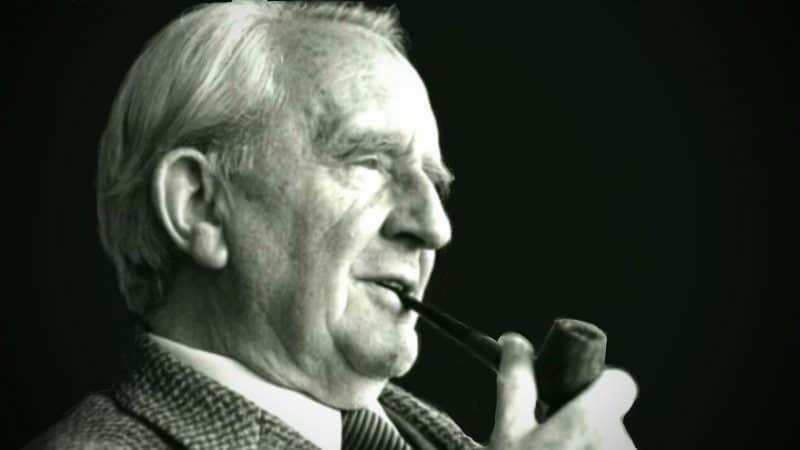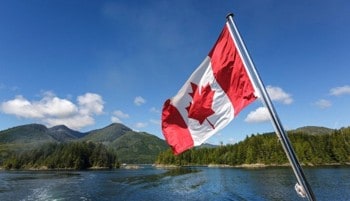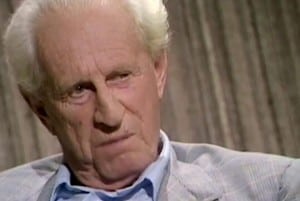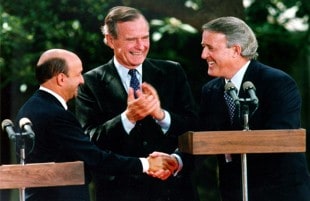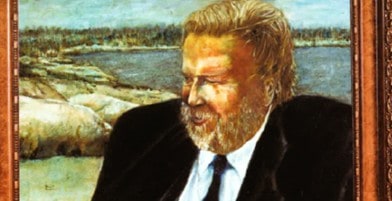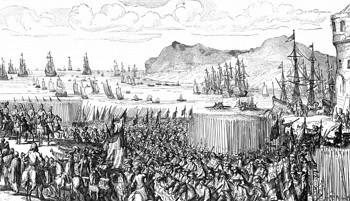J.R.R. Tolkien (1892-1973) is widely reputed to be the archetypal author of fantasy in the modern period, or what has come to be termed “high fantasy”. Some have said that Tolkien both inaugurated and closed out the high fantasy subgenre, since anything that follows him is bound inevitably to appear derivative. Over the years, there has been a wide-ranging debate on whether Tolkien’s The Hobbit and The Lord of the Rings, are more “pagan” or “Christian” in spirit. In this presentation, we will be looking […]
Kategoria: Historia
Wegierski: Third parties in Canada
“Third parties” are an endlessly fascinating topic of study for political theorists. The notion of “third party” arises in polities characterized by “first-past-the-post” voting systems, where there are usually only two major parties. Polities characterized by proportional representation (PR) voting systems, tend to have a multiplicity of parties. Particular popular attention – although scant electoral support — is given to “third parties” in the U.S. – where the “two-party” system is so strongly entrenched. Since the 1850s, with the rise of the Republican Party, there […]
Wegierski: Herbert Marcuse vs. Aldous Huxley’s Brave New World — a thought experiment
Mark Wegierski speculates what Herbert Marcuse would say about the famous dystopia. The thought-experiment is a recognized form of obtaining certain insights, even in the strictest hard sciences. Aldous Huxley, who passed away fifty-five years ago, on November 22, 1963, would have probably appreciated laying out a hypothetical situation like the one below. Let us say that Herbert Marcuse, the Frankfurt School theorist, often considered as one of the intellectual progenitors of the Sixties’ revolutions, were re-awakened several hundred years hence, in the world of […]
Wegierski: Thirty years since the Canada-U.S. Free Trade Agreement
Mark Wegierski looks at Mulroney’s main “right-wing” achievement. It had appeared, in the summer of 1987, that Brian Mulroney’s Progressive Conservative federal government was headed for one of the worst defeats in Canadian political history. In many of the 1986 and 1987 polls, the federal P.C. party stood at about a quarter of committed popular support, behind both the Liberals and the New Democratic Party (NDP), Canada’s social democrats. Indeed, the NDP had temporarily surged into first place. Despite the early hopes placed on him, […]
Wegierski: George Parkin Grant in Canadian Context
This year is the centenary of George Grant’s birth, and thirty years since his passing. George Parkin Grant (1918-1988), is Canada’s leading traditionalist philosopher. The main expression of George Grant’s thought occurs in his four major books: Lament for a Nation: The Defeat of Canadian Nationalism (1965), Technology and Empire: Perspectives on North America (1969), English-Speaking Justice (1974/1985), and Technology and Justice (1986). Philosophy in the Mass Age (1959), and Time as History (1969), are his two major earlier works. Grant is a complex philosophical […]
Wegierski: Commemorating the centenary of George Grant’s birth, and thirty years since his passing
2018 marks the centenary of George Grant’s birth, and thirty years since his passing. George Parkin Grant is still probably the most prominent Canadian traditionalist philosopher. One could sharply ask today — is there still really a place for Grantian-type traditionalism in current-day Canada? First of all, it should be remembered that Grant’s profound and subtle definition of conservatism is very remote from what is its more common definition today, as mostly a tax- and budget-cutting ideology. Despite his greatly impassioned writing, Grant did not […]
Rękas: Stanisław Mikołajczyk, czyli klęska fałszywego realisty
Jednym z najpopularniejszych mitów dotyczących powojennej historii Polski – jest uznawanie skrajnie nierealistycznej polityki Stanisława Mikołajczyka za przykład… realizmu politycznego, w dodatku skazanego na klęskę. Błędny obraz rzeczywistości „Próbował się dogadać ze Stalinem/komunistami i ledwo z życiem uszedł, czyli to dowód, że się ze Stalinem/komunistami dogadać nie dało – więc i nie należało próbować” – tak mniej więcej brzmi najczęstsze jednozdaniowe podsumowanie kilku lat z niekończącego się pasma polskich błędów politycznych. Oczywiście – podsumowanie całkowicie błędne. Stanisław Mikołajczyk niczego takiego NIE PRÓBOWAŁ. Przeciwnie, lider PSL […]
Wegierski: The professor and the philosopher — Thomas Hurka and George Grant
In commemoration of 100 years since the birth of George Grant; 30 years since the passing of George Grant. This essay arose out of a piece defending George Parkin Grant – originally written in 1992 — that the Toronto Globe and Mail newspaper had refused to publish. In the last three or so decades, there seems to have emerged a tendency, in the Canadian establishment media, to criticize George Parkin Grant (1918-1988), one of Canada’s pre-eminent thinkers (on those rare instances when he is noticed at […]
Wegierski: On the 330th Anniversary of the Glorious Revolution. The Historical Significance of the English Civil War
The persons who are likely to read konserwatyzm.pl are hopefully very atypical of the prevailing, contemporary North American ethos: profoundly concerned with history and culture, and able to read articles requiring a large degree of cerebral effort and long attention-span. This essay is written with the audacious thesis that the now very distant-seeming English Civil War of 1642-1648, and its real aftermath, the so-called Glorious Revolution of 1688, constitute one of the critical defining experiences of the new cultural identity that can be termed Anglo-Americanism, […]
Wegierski: Whither Québec? Past, Present, and Future (II)
In the case of a long-serving Liberal Prime Minister like Mackenzie King, and a Liberal Party that could be called “centre-traditionalist” or “traditionalist-centrist” – the consequences of Liberal government were more-or-less salubrious for most Canadians, and did not imply the revolutionary transformations of “regime-change”. However, from 1963 forward, the federal Liberal Party came under the spell of revolutionary-transformative ideas. Indeed, some have argued that Trudeau largely “hijacked” a “centre-traditionalist” Liberal Party as a vehicle for his agenda of radical, total transformation. In the years 1968 […]

